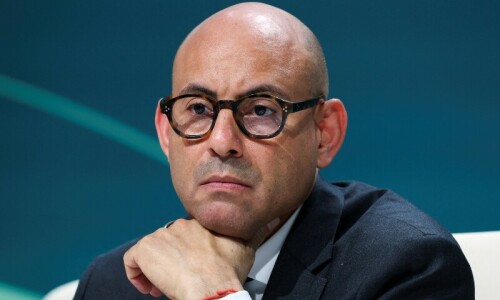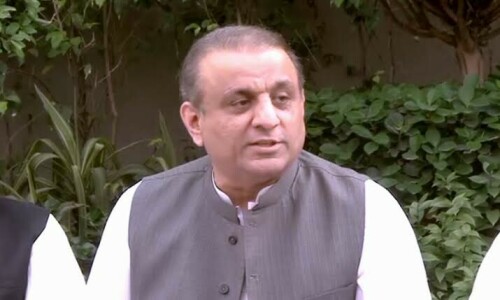
BAGHDAD: A series of car bombs exploded within minutes of each other in and around Baghdad on Sunday, killing at least 28 people and wounding dozens in overwhelmingly Shia populated areas.
The attacks come amid rising sectarian discord in Iraq. The explosions, mostly in outdoor markets, struck at the start of the local work week and appeared aimed at causing mass casualties among residents going about their morning shopping.
Violence in Iraq has fallen since the height of sectarian fighting in 2006 and 2007, but insurgents still launch lethal attacks frequently against security forces and civilians in an attempt to undermine the Shia-led government.
There was no immediate claim of responsibility for the attacks, but similar ones have been orchestrated by Sunni extremists, such as al-Qaida's local arm. The group, known as the Islamic State of Iraq, favors large-scale, coordinated attacks. It frequently targets Shiite Muslims.
Police and hospital officials provided the death toll, and said more than 80 people were wounded. They spoke on condition of anonymity because they weren't authorized to brief reporters.
The detonation of a parked car loaded with explosives in the sprawling Shia district of Sadr City heralded the start of the attacks late Sunday morning. Two more parked cars later exploded elsewhere in the poor neighborhood. Other blasts erupted in the Baghdad neighborhood of al-Amin, in an open-air market in Husseiniya, just northeast of the capital, and in the Kamaliya area in Baghdad's eastern suburbs.
As sectarian strife mounts, protesters drawn overwhelmingly from Iraq's Sunni community have been staging weekly demonstrations and sit-ins since late December to rally against the government, which is led by Shia Prime Minister Nouri al-Maliki. The protesters have rejected calls for violence and distance themselves from extremists groups such as al-Qaida.
There are also concerns that Sunni insurgents could step up attacks ahead of provincial elections scheduled for April 20. The ballot would be the first country-wide vote since the US troop withdrawal more than a year ago.
Sunday's attacks bring to more than 100 the number of people killed in violent attacks in Iraq since the start of the month. A total of 178 were killed in January attacks, according to an Associated Press count.













































Dear visitor, the comments section is undergoing an overhaul and will return soon.